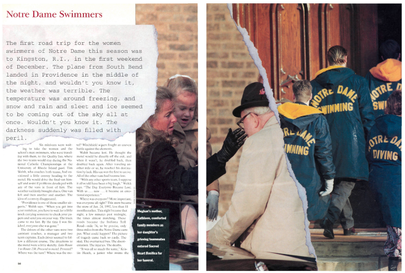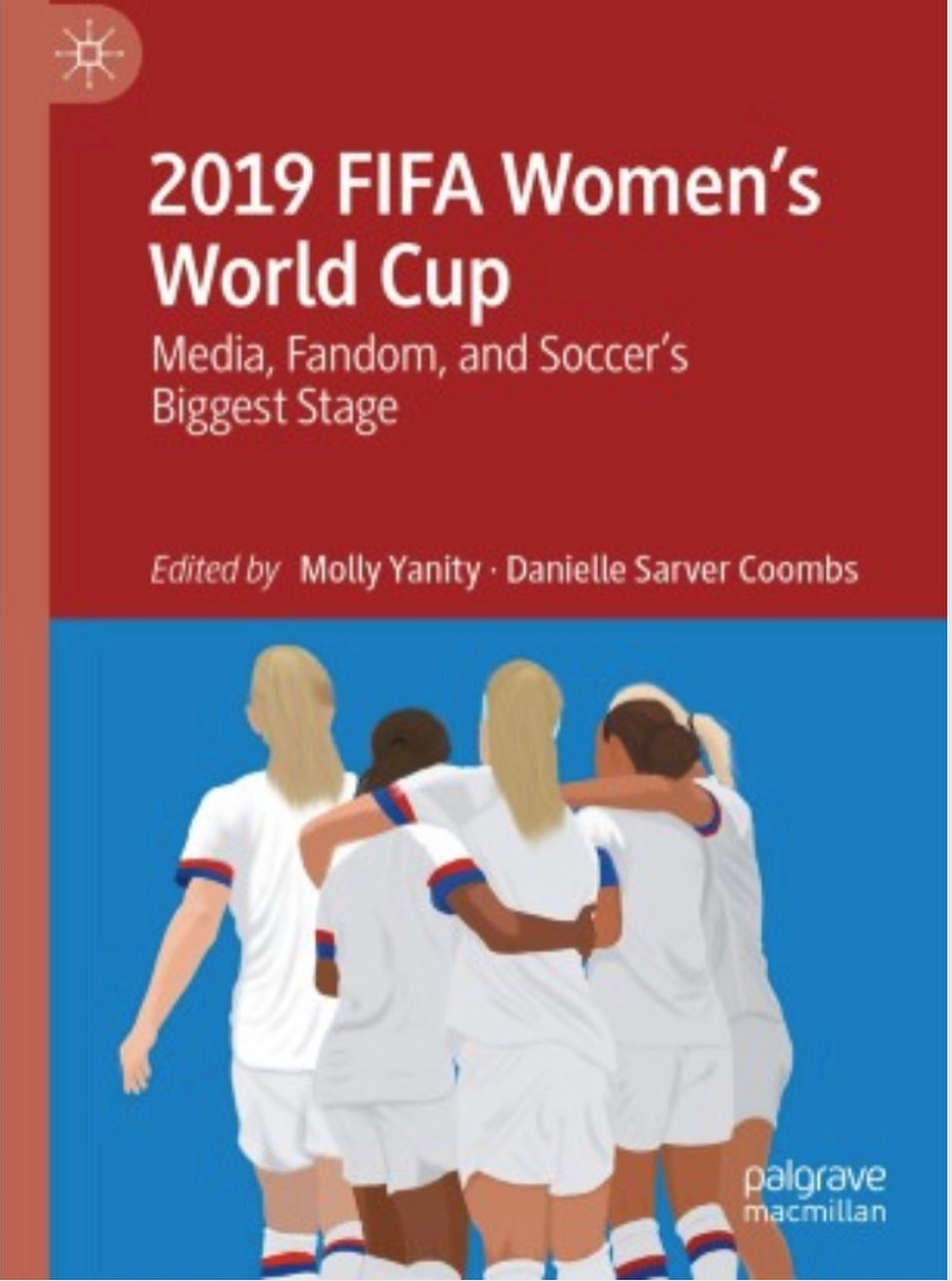 WEEK 6: Make your words sing | WEEK 7: What to leave in, what to leave out | WEEK 8: Understanding others In 1992, before I graduated from high school and prior to the birth, even, of my current students, the University of Notre Dame suffered a tragedy. The bus carrying the women's swimming & diving team, traveling from Evanston, Illinois to South Bend, Indiana after a dual meet at Northwest, crashed. The accident, in freezing weather, killed two young women. My students into Boston sports know of Leigh Montville, now a Boston Globe columnist. In 1992, though, he was a senior writer for Sports Illustrated. And, he wrote a story in which the details I still remember to this day 24 years later. Montville weaved these simple, but memorable details into this sad story. Before the bus crashed, the movie Dying Young, which starred Julia Roberts, had played. They ate pizza. They were in a "whiteout" when the bus crashed. The weight of the bus literally knocked the wind out of the two young women who died, suffocating them. The team had a phrase for practice that the members used when dealing with the deaths of their friends: "Cancel the pain." Folks, those are things I remember from originally reading the article. Montville creates the scene and delivers the detail. Notice his cadence -- and how it changes. (SI.com's "The Vault" does a really poor job with layout -- the paragraphs are all clumped together, but you can still see - and hear - the sentences.) Notice how he uses short, quick sentences. Then, uses longer, more descriptive sentences. Both, however, take you there whether Montville is describing injuries, or the Notre Dame community. He is somber in detailing a frantic emergency room scene, but follows it immediately up with a powerful, but almost humorous quotation. But, there is also something completely unique about this article. Montville inserts himself into the article. Granted, this is something I would probably put you on blast for if you did it for one of my assignments, but it turns out, one of the surviving swimmers was Montville's goddaughter. What do you think? Does it work in this article? I think it adds critical detail to the story, as well as a sentiment I might not otherwise grasp with such completeness. Montville even probes the ethical dilemma in the same article. Now, why do you think this works as I've described it here, but I would still not want it from my novice students? Because my students don't have the experience, yet, to understand what needs to be left in and what needs to be left out of a story. (The headline, here, I lifted from Kevin Van Valkenburg's syllabus.) Despite bringing himself into the story, Montville doesn't get preachy. Instead, he describes his feelings wondering if Kristin Heath was going to be OK, his awkwardness the first time he saw her after the accident. And, he asks the reader if he should even be mentioning this. But, these are the emotions of tragedy -- fear, longing, worry, anticipation, not knowing what to say. He delivers it masterfully and he does so because he knows exactly what he is doing, because he is a master of this craft. Give it a read. What do you think? And, how about that ending? That was something else that stuck with me. I can just see a guy shaking his head with a big smile and truly, really feeling such admiration and joy for a young woman who had gone through so much and come out on the other side. STILL LOOKING FOR MORE? Van Valkenburg posted this story from Kurt Streeter, "A Team Playing From the Rough," in the Baltimore Sun. This story cuts through race, privilege, class and tells us a story that invokes all of those things manifested in an unlikely high school golf team in East Baltimore. What is #QUreads? Each Monday, I will tweet a link to a blog post that will include a selected reading and an explanation of why you should read and study it. You can find it using the hashtag any time. My prediction is that, if you read and study these stories, you will be a better writer by the end of the summer. Granted, if you practice in a journal, read consistently, take note of style and think about what might the writer's decision-making process be, you will improve greatly. I'm just here to help the process along for you. Feel free to use the Comments section here or on Twitter to discuss the articles and writing techniques, to ask questions, or offer links to other great stories.
0 Comments
Leave a Reply. |
2019 FIFA Women's World Cup: Media, Fandom, and Soccer's Biggest Stage is available online and in hardback from Palgrave Macmillan.
Molly Yanity, Ph.D.
|


